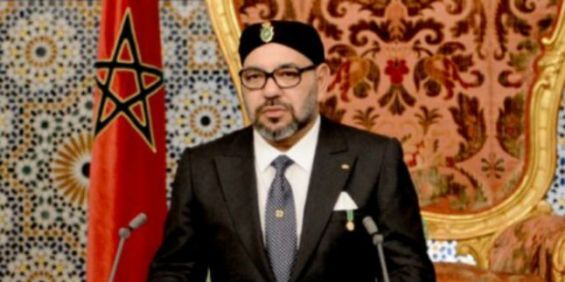
King Mohammed VI has called for strengthening social stability, enhancing women’s empowerment and economic performance of the country to counter regional and international challenges.
In his speech made Saturday on the occasion of the 23rd anniversary of his accession to the Throne, the Monarch stressed the need to shore up social stability to enhance the status of women and the family and boost the national economy.
“Building the kind of country we yearn for – one that is committed to progress and dignity – is possible only with the participation of all Moroccans – men and women alike – in the development process”, said the King, insisting on the full participation of Moroccan women in all sectors.
“Ever since my accession to the throne, I have been keen to improve the status of women, open up prospects for their advancement and enable them to hold their rightful place in society”, said the King, recalling in this regard the reforms introduced such as the Family Law and the 2011 Constitution, which enshrines equality between men and women in terms of rights and obligations and provides for the principle of parity as a goal to be pursued by the state.
“Today, in Morocco, women cannot be deprived of their rights”, underlined the Monarch, saying “we need to make sure the constitutional institutions concerned with the rights of the family and women are operational, and to update the relevant mechanisms and regulations for the promotion of the status of women and the family”.
The Family Law was a major step forward. However, it is no longer sufficient. Experience has shown there are many hurdles which stand in the way of completing this process and achieving its objectives, said the King, citing the inadequate enforcement of the Family Law for various sociological reasons as a category of employees and justice practitioners still believe the said law is strictly for women.
In fact, the Family Law does not concern men only, nor is it specific to women: it is a law for the entire family. This law is based on fairness, since it gives women their rights just as it gives men theirs; it also takes into consideration the interests of children, explained the King, calling on everyone to commit to the proper and full implementation of the provisions of the Family Law.
In his speech, the Monarch also tackled the impacts of the coronavirus on various socioeconomic sectors, saying many people, especially from vulnerable and poor segments of society, have been deeply affected socially and economically.
However, “we have managed that difficult phase successfully and in a unique way, thanks to the concerted efforts of the citizens and the authorities”, said the Monarch, affirming that the state has exerted tremendous efforts, devoting significant financial resources to tackling the impacts of the COVID-19 pandemic. It provided direct material assistance to needy families as well as support to the sectors affected by the pandemic.
The State also made sure basic goods were available on a continuous basis and in sufficient quantities throughout the country, said King Mohammed VI, noting that Morocco was one of the first countries which managed to purchase the vaccine needed, providing it, free of charge, not just to its citizens, but also to foreign residents, despite the exceedingly high costs.
In the same circumstances, “we started implementing the major project aimed at achieving universal social protection coverage as well as the upgrading of our national health system”, said the Monarch, recalling the projects launched with a view to achieving sovereignty in the health sector and making sure that Moroccans are safe and secure.
Thus, in less than a year, the number of subscribers to the compulsory medical insurance scheme exceeded six million non-salaried people and their dependents, said the King, noting that mandatory health coverage will be completed by the end of this year, once it has been extended to the beneficiaries of the subsidized health insurance regime – RAMED.
“I am determined to ensure the gradual implementation of the family allowance scheme as of the end of 2023, in accordance with the program set to this end”, said the King, stressing that nearly seven million children – mostly from poor or vulnerable families – will benefit from this solidarity-based national program, in addition to three million households with no school-age children.
The Moroccan economy has proven to be resilient in the face of crises and fluctuations. However, the recovery phase has been short-lived due to the current global circumstances, said the King.
These external factors, coupled with a modest agricultural season, have caused the prices of some commodities to soar. This is an issue plaguing all countries around the world, added the Monarch, citing in this regard the national program launched to mitigate the effects of drought on farmers and rural populations.
“I have also instructed the government to allocate substantial funds to subsidize some basic goods and ensure they are available on the market”, said the King.
On Morocco’s priorities at the regional and international levels, the Monarch tackled relations with neighboring Algeria, saying that the borders separating the two brotherly Moroccan and Algerian peoples, will never stand in the way of the interaction and understanding between the two peoples.
“In fact, we want these borders to serve as bridges for building a common future for Morocco and Algeria, and thus set the example for other peoples in the Maghreb”, said the King, calling on “Moroccans to continue to adhere to the principles of brotherhood, solidarity, and good-neighborliness binding us with our Algerian brothers and sisters”.
